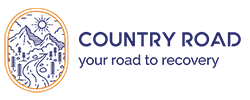When someone you love is struggling with addiction symptoms, you might feel like you’d do anything to help. The only problem is this: Where do you even start? Addiction help for veterans is more accessible and more affordable than you might think — if you know where to look. Read on for easy steps to get addiction help for a veteran.
Rehab for Veterans Tip 1: Does Your Loved One Need Rehab?
Identifying addiction in a loved one can be challenging for anyone. Military families have an especially tricky time of it, though, for many reasons. First, if a loved one has been away for military service, you might wonder if their new behavior is a result of substance abuse or something else. Have they just changed?
Second, the military has a particularly strong culture of shame and stigma around addiction due to the no-tolerance policies for drug use. Veterans work hard to hide their addictions — maybe even harder than civilians do.
To understand if your loved one needs rehab, consider their substance use habits as well as the effect those habits are having on their life. If they are experiencing issues with their job, relationships, health, or the courts due to their substance abuse, addiction treatment for veterans could help.
Rehab for Veterans Tip 2: What Kind of Addiction Treatment Does Your Loved One Need?
There are many different kinds of addiction treatment, all designed to fit the needs and goals of a variety of individuals. While outpatient programs are sometimes appropriate for people who are treatment-resistant, the complexity of addiction and trauma in veterans often requires more substantial treatment. Residential addiction treatment for veterans can help your loved one heal their addiction as well as the trauma or mental health difficulties they face. From there, intensive outpatient treatment could be an appropriate next step to continue the road to recovery.
Rehab for Veterans Tip 3: Explore How to Pay for Veterans Rehab
Drug or alcohol rehab for veterans is often covered by VA benefits. Contact your loved one’s primary care provider to learn more, or ask our admissions team. They have years of experience working with the VA to get help for veterans and can help you understand what your loved one’s insurance plan will cover and how to pay for any outstanding charges. They also can help with planning logistics such as detox, transportation, or aftercare for your loved one.
Rehab for Veterans Tip 4: Call for Addiction Help
Call our team at the link or send a chat to get started on your road to recovery.
Rehab for Veterans Tip 5: Build a Recovery-Supportive Environment
Meanwhile, you can dedicate time during your loved one’s treatment to ensure that they stay on that road to recovery. Building a recovery-supportive home environment is key to lasting recovery, and our team can help you understand how to do that successfully. In addition, they can point you in the direction of resources like Al-Anon to help you do your own healing as well.
Are you ready to start your family’s road to recovery? Contact us today.


